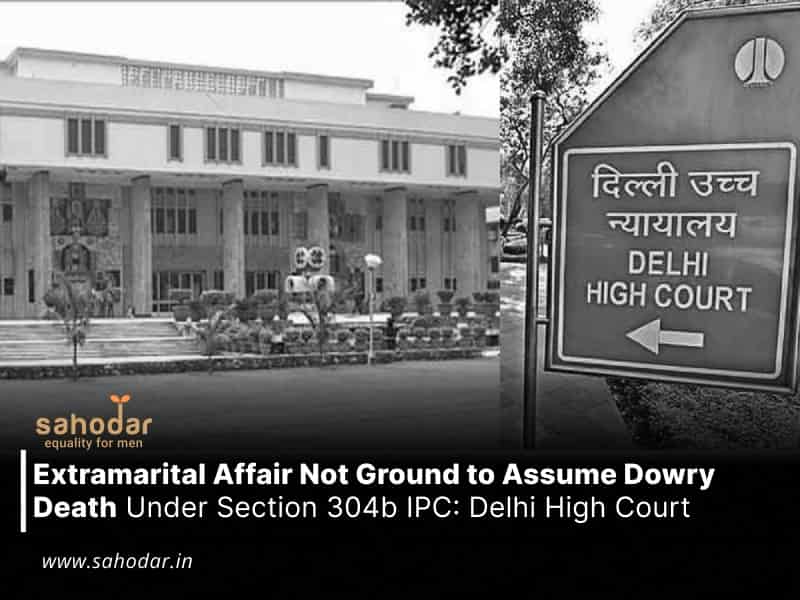The Delhi High Court recently observed that a husband’s extramarital affair or betting habits cannot be admitted as grounds to implicate him under Section 304B of the Indian Penal Code (IPC), which punishes the dowry deaths of wife.
The Court observed it while granting bail to a man whose wife had committed suicide in August 2022 within only two years of marriage.
The Court said, “Insofar as the extra marital affair of the petitioner or the petitioner being into betting, is concerned, that cannot be a ground for implicating the petitioner under Section 304B IPC.“
Justice Vikas Mahajan also noted that for invoking Section 304B of IPC, not only harassment should be there soon before the death of the woman but such harassment of the woman must also be related to a demand for dowry.
The Court added, “The expression “soon before death” is a relative expression. Time lag may differ from case to case. All that is necessary that the demand of dowry should not be stale but should be a continuing cause for the death of married woman under Section 304B IPC.“
If diving into the background, the bail applicant, in this case, had allegedly misrepresented that the husband was a law graduate and practicing as a lawyer when married to the deceased woman.
The wife later got to know about his husband’s extramarital affair and his habit of betting too. Due to the strained relationship, she filed multiple cases against her husband including a divorce petition.
The Court was told that the couple had been living separately since April 2019, 2021 and the woman died by suicide on 07 August, 2022.
Post death of the woman, her father filed a criminal complaint against the man (husband of the deceased) and alleged that it was a case of dowry death.
In his statement given to the police, the father of the deceased woman alleged that the accused had met the woman a day before her death and threatened her which led her to suicide.
The Court, however, noted that the woman’s father did not allege that any dowry demand was raised by the accused when he allegedly met the woman a day prior to her suicide.
The Court observed that the woman had earlier made a complaint in which she alleged him of doing cruelty under Section 498A of IPC in 2021, in which the allegation of dowry demand was also made.
However, the Court noted that the allegation related to a time before April 19, 2021 which was made at the time when the woman left her matrimonial home.
The State conceded that nothing on record was found to show that demand for dowry was made by the accused after the victim had left her matrimonial home.
The Court proceeded to allow release of the accused on bail after including the aspect, that there was little to indicate that the woman was subjected to dowry-harassment “soon before” her death.
Notably, it was told to the Court that the woman was suffering from anxiety and depression.
The Court further observed, “It prima facie appears that the deceased was under treatment for anxiety and depression and the demand of dowry was not stated to be a stressor or trigger for her said medical issues, as shared by her with the treating doctor.“
Therefore, the Court opined that the accused was entitled to the presumption of innocence at such a stage of the case.
Since the criminal trial may be protracted, it would not be useful to keep the accused behind bars, the Court stated while allowing the bail plea.
Senior Advocate JP Singh and Advocate Surender Singh appeared for the accused.
Additional Public Prosecutor Aashneet Singh represented the State.
Advocates Amit Gupta, Roshni Singh, HS Mahapatra, and Shiv Verma appeared for the complainant.
News Source: https://www.barandbench.com/news/delhi-high-court-husband-extramarital-affair-betting-habit-section-304b-ipc

